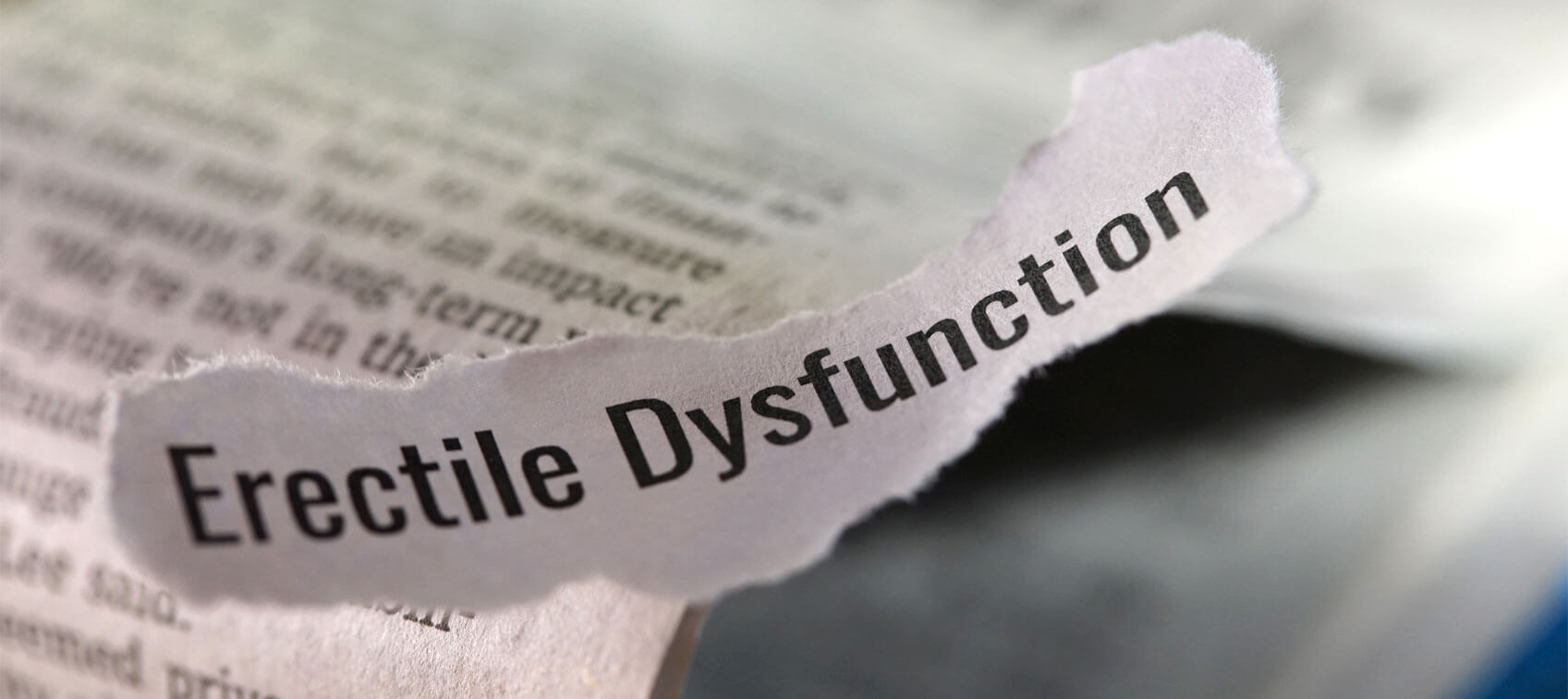
Vision loss, kidney failure, neuropathy, and lower limb amputations are well-known complications of diabetes. However, there are a number of other diabetic complications that get less attention, and one of the most common is erectile dysfunction.
Can Diabetes Cause Erectile Dysfunction?
A group of international researchers analyzed 145 published studies involving more than 88,0000 men and came up with some disturbing conclusions:
- More than half of men with diabetes had problems achieving or maintaining erections.
- Prevalence was highest among those with type 2 diabetes—66% of these men had erectile dysfunction.
- Men with diabetes were three and a half times more likely to develop erectile dysfunction than men without diabetes.
- They were more likely to develop it 10–15 years earlier than healthy men.
- Diabetes is one of the main risk factors for erectile dysfunction.
How Is Erectile Dysfunction Caused by Diabetes?
Erections begin in the brain. Testosterone-fueled desire triggers impulses that travel through the spinal cord to nerves in the penis and signal the release of nitric oxide.
Nitric oxide relaxes the smooth muscles in the arteries, which allows the penis to fill with blood. At the same time, penile veins constrict and prevent outflow, resulting in an engorged, firm erection.
When any of these steps falter, erection problems may occur—and diabetes does a number on all of them.
Testosterone Deficiency Is Common in Diabetes
Testosterone is involved in several aspects of erectile function besides sexual desire, so it’s no surprise that testosterone deficiency is associated with erection problems. But this hormone’s role in erectile dysfunction caused by diabetes is even more significant.
Testosterone deficiency also promotes obesity, insulin resistance, and metabolic syndrome—conditions that, in and of themselves, are linked with both diabetes and erectile dysfunction.
Men with testosterone deficiency are significantly more likely to develop diabetes, which puts them at greater risk of erection problems caused by diabetes. Furthermore, studies suggest that one in three men with diabetes has an inadequate level of testosterone.
Nerve and Blood Vessel Damage
As many men know, you can have a raging libido and adequate testosterone but still have erectile dysfunction. The spirit is willing, but the body doesn’t cooperate. This is especially true of men with diabetes.
Chronically elevated blood sugar unleashes destructive processes that damage and impair function of the nerves and blood vessels. Over time, this damage can lead not only to erectile dysfunction but also to neuropathy, retinopathy, and the entire constellation of diabetic complications.
These processes include:
- Oxidative stress
- Advanced glycation end-products (AGEs)
- Chronic inflammation
- Endothelial dysfunction and reduced nitric oxide production
Natural Therapies for Diabetic Erectile Dysfunction
The best way to treat—and prevent—erectile dysfunction caused by diabetes is to make lifestyle changes that dampen these destructive processes and have positive effects on both of these conditions.
- Lose weight. Obesity is an independent risk factor for both diabetes and erectile dysfunction. Intermittent fasting is an exceptionally effective approach to lasting weight loss.
- Get moving. High-intensity interval training is a great way to get maximum benefits in minimal time.
- Stop smoking!
- Optimize your nutritional status. A healthy diet and a daily multivitamin with robust levels of antioxidants plus omega-3s and extra vitamin D dampen the adverse effects of oxidative stress, AGES, chronic inflammation, and more.
- Control your blood sugar. Weight loss, diet, exercise, and targeted supplements like berberine, chromium, and cinnamon are power therapies for maintaining optimal blood sugar levels.
- Consider supportive supplements. Although many products claim to enhance male sexual function, only a handful of ingredients are backed by science. They include L-arginine, Pycnogenol (especially in combination with L-arginine), and ginseng. Take as directed, and don’t expect miracles. Benefits are modest, at best.
More Intensive Treatments
More intensive treatments are available through your doctor. Although there’s no magic bullet that works for every man, you’re likely to find a winner among these therapies:
- Testosterone replacement therapy for men with low testosterone increases libido and often enhances erectile function. It also improves insulin sensitivity, fat loss, gains in muscle mass and strength, and the overall diabetic condition.
- Viagra and other PDE5 inhibitors (Cialis, Levitra, Stendra, etc.) are generally the first-line treatment, and they are quite effective. Be advised, however, that success rates tend to be somewhat lower in men with diabetes.
- Penile injections of drugs that promote erections may be indicated if oral drugs don’t work.
Other options include vacuum constriction devices and, in rare cases, penile implants.
Diabetic Erectile Dysfunction Can Be Treated
Erectile dysfunction is a sensitive issue. Many men find it difficult to discuss with their doctors—and many doctors don’t bring it up. Do not ignore it. A satisfying sex life is an important part of our well-being, and odds are excellent that you’ll find a solution that works for you.


